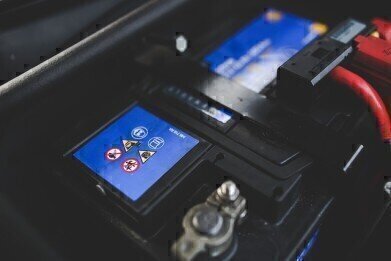Biofuel industry news
What is the Temperature Range for Batteries?
Oct 31 2022
Of all the factors that affect battery performance, temperature is one of the most important. Tolerance can vary significantly depending on the type of battery being used and the temperatures the cell or system is exposed to. This is because temperature can have a direct impact on the chemical reactions that take place inside batteries.
How temperature affects chemical reactions
For standard alkaline batteries like AA and AAAs, the suggested operating temperature ranges from -18° C to 55° C. This range is recommended by battery manufacturing giant Energizer. However, there are still notable performance variations within this range.
“Performance of the battery is primarily dependent on how fast critical fuels, water and hydroxyl ions, can move and react in the battery,” reads an alkaline battery handbook published by Energizer. “The mobility of ions is known as diffusion. For example: maximum battery performance will not be achieved at cold temperatures. As the temperature decreases, the diffusion of the fuels will decrease resulting in lower performance.”
Optimising EV performance
Temperature is a major concern in the electric car industry, where range is front of mind for manufacturers and consumers. In an article published by Consumer Reports, the authors investigate how temperature impacts EV range. The team tested best-selling models from Tesla, Ford, Hyundai and Volkswagen and noted performance in cold, mild and hot conditions. Overall, they found that cold temperatures drain around 25% of advertised range off EV batteries, when driving at around 113 kilometers/hour. Progress is important as EVs have a critical role to play as governments take steps to decarbonise economies.
The link between temperature range and safety
Understanding the temperature range for batteries is also a critical part of safety. For example, a huge amount of research and development went into designing the 3600-kilogram battery that powers the all-electric Alice aircraft. Designed by Israel-based company Eviation, Alice is one of the world’s first all-electric planes. The lithium ion cells adopt the same cylindrical shape used by EV manufacturers like Tesla and feature smart sensors to track temperature and ensure operating conditions remain safe and stable. Tracking temperature also helps engineers improve factors like energy density, range and life cycle.
A new generation of ‘smart’ batteries
From smartphones to electric aircraft, actively monitoring temperature is one of the key benefits of smart battery cells. Using intelligent battery management systems (BMS) and built-in sensors, smart cells track temperature and use data to improve performance. Want to know more? We explore how ‘smart’ technology is transforming batteries from passive to active components in ‘What Are Smart Battery Cells - Definition, Applications & Advantages’.
Digital Edition
PIN 25.6 Buyers' Guide
January 2025
Buyers' Guide Directory - Product Listings by Category - Suppliers Listings (A-Z) Articles Analytical Instrumentation - ASTM D7042: The Quantum Leap in Viscosity Testing Technology -...
View all digital editions
Events
Jan 20 2025 San Diego, CA, USA
Jan 22 2025 Tokyo, Japan
Jan 25 2025 San Diego, CA, USA
SPE Hydraulic Fracturing Technology Conference and Exhibition
Feb 04 2025 The Woodlands, TX, USA
Feb 05 2025 Guangzhou, China



















